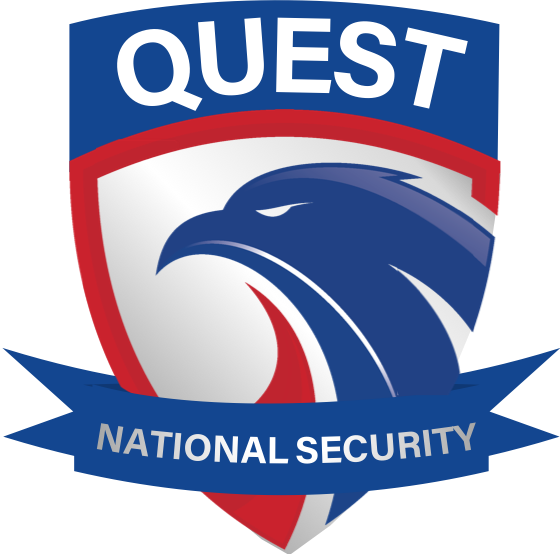Specializing in fire investigations related matters, Quest National Security personnel include Arson Experts which assist our clients, individual and corporate, to resolve cases involving losses due to fire. We initially perform a complete and thorough origin and cause investigation. We determine where the fire started and then make every effort to determine what caused the fire to occur. The entire scene is photographed and evidence is properly collected and preserved for future testing. Investigators are trained in the art of witness interviewing and obtain skills necessary to determine if the fire was caused by accident, an intentional act (arson), or due to an act of nature. QNS investigators perform realistic non-assumptive investigations and know when to list a fire as un-determined (those cases where factual and provable evidence is simply not available to support any of the three previously listed categories). QNS investigators have the experience and expertise to serve as fire expert witnesses, for court room testimonial purposes.
QNS Fire Analysis Consultation Services
Our pledge is to assist our clients in evaluating individual cases involving fire losses so that strategic decisions can be made utilizing up to date research and expertise. We maintain an up to date list of experts in areas that may not be in our realm of expertise. We invite your questions.
QNS Arson Investigation Services includes the following:
- Structural Fires- (commercial/residential)
- Vehicle Fires- (personal/farm machinery/agricultural equipment)
- Explosions- (liquid and gas)
- Wild Land Fires
- Arc Mapping
- Metallurgical Failures
- Criminal Defense
- Assistance in Court Litigation
- Manufacture Product Liability
- Insurance Firm- (insurance claim investigational services)
Quest National Security handles each Arson Investigation case with multiple expert teams including private detectives, electrical experts, furnace experts, metallurgical teams and laboratory personnel. The collaboration of these talents insures that most fire cases are resolved within a reasonable time.
About Quest National Security Arson Investigations
The investigation of a fire begins at the desk of the adjuster immediately after the damages are reported.
At that point QNS investigators are contacted and arrive on scene to begin their origin and cause investigation. This initial investigation is totally non-assumptive in nature in that the main purpose is to document and record the data available at the scene. During the course of the initial investigation empirical data is being obtained (data based on observation, experience and is verifiable- NFPA 921 4.3.3) and QNS investigators are developing hypothesis as to the origin and cause of the fire.
As evidence is collected it is then analyzed and after all evidence is collected a determination as to the cause of the fire is made. In the event the fire is determined to be accidental or caused due to an act of nature all data recorded and evidence collected is secured for further analysis and a complete report is submitted for additional review.
If the evidence suggests an intentional fire set (arson) then the investigator(s) begin formulate hypothesis based on their data analysis (facts and evidence obtained during the origin and cause investigation). The hypothesis must then be tested and the test must pass the principal of inductive reasoning challenges (the hypothesis is compared to all known facts as well as the body of scientific knowledge associated with the phenomenon-NFPA 921 4.3.6).
The investigation moves into the criminal arena if these tests are met. In the event there is a lack of empirical data available and the hypothesis fail to meet the inductive reasoning challenge then the fire must be listed as undetermined.
Arson accounts for billions of dollars in property losses each year to the public and private sectors, as well as to the insurance industry. Similar to burglary and theft, arson is also a crime of stealth. The perpetrator of arson does not want to be seen committing his cowardly act. Most arson fires, therefore, occur at night and normally when no one is in the structure. Arson for profit conducted by the insured is usually planned well ahead and the insured usually has a solid alibi far from the scene.
If there are indicators that the fire did not occur as reported, then an independent fire expert should be assigned to conduct the scene examination. If the fire is determined to be arson by the local officials or by an independent fire expert, Quest National Security (QNS) recommends letting the investigator do a complete and thorough follow-up investigation. The scene will often link the crime of arson to the perpetrator
About Arson Motives
All fires fall into one of three categories: Accidental, Incendiary or Providential. Most fraudulent fires fit into the incendiary category, and where fraudulent fire occurs, a human hand is always involved. Somewhere, perhaps hidden in a maze of seemingly unimportant facts, lays a motive.
Motive may be the first indication of potential arson. Establishment of a motive also aids in identifying a potential or possible suspect.
The following seven motives for incendiary fires are routine for fire investigators:
- Fraud
- Vandalism (such as in Riots)
- Jealousy
- Revenge
- Thrill (Pyromaniac or Juvenile)
- Terrorism
- Effort to hide another crime
Red Flags in the Fire Scene
- Large amount of damage
- Low burning
- UnidÅentifiable point of origin
- No “V” burn patterns present
- Lack of accidental causes
- Separate and unconnected fires
- Unusual burn patterns and high heat stress
- Windows blown away from structure
- Evidence of forced entry
- Missing inventory
- Missing personal items such as photos, bibles, yearbooks, weapons, jewelry
- Evidence of a previous fire
- Unkempt yard
- “For sale” signs
- Fuel cans
- Fire extending beyond the perimeter of the structure
- These and more can be an indication that fraud may be the cause of the fire.
Red Flags in Claims of Fire
- Fires occurring at night
- Insured out of town and with solid alibi
- Recently issued policy
- Recent endorsement to policy
- Insured overly pushy
- Insured very familiar with insurance terms
- Insured behind on mortgage payments
- Previous claims by insured
- Hand-delivered proof of loss
- Fires occurring close to expiration date of policy
- Over-insured property
- Property for sale
- List of out of state suppliers
- Many antiques claimed as destroyed
- Sprinkler system recently de-activated
- Alarm system not set
- Recent decline in utility use
- Business or liquor license lost by insured
- Lease with fire-termination clause
- Company needing to upgrade old equipment
- Stock becoming obsolete (shoes, clothing, food products)




